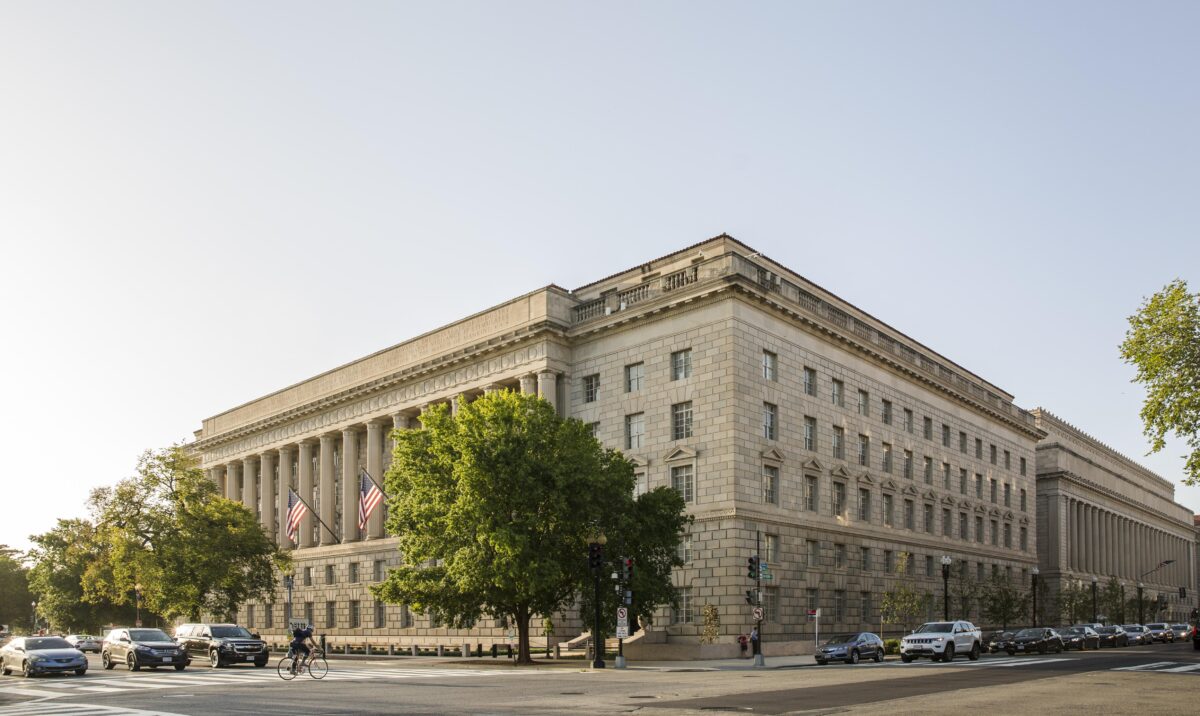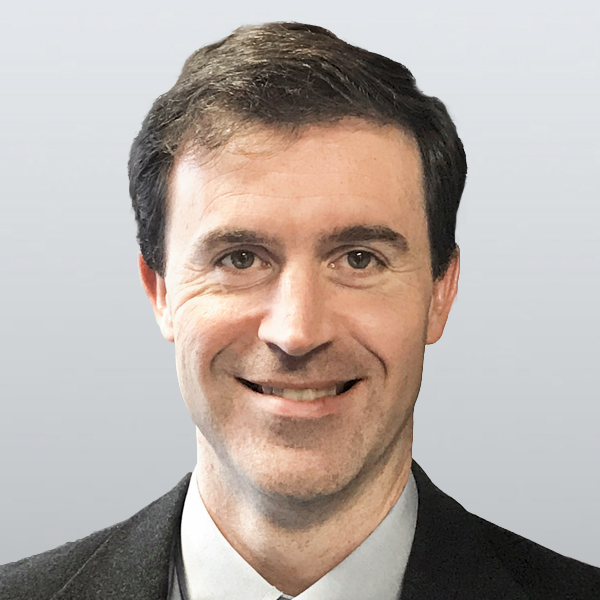Commentary
The moral justification for markets finds itself on the defensive in the face of aggressive challenges issuing from progressives but also from economic nationalists on the right. Many of those on the right don’t understand themselves to be challenging markets as such—only certain economic forces that, they contend, have drained the middle class of its vitality, produced excessive concentrations of power in certain sectors, and that regularly challenge and undermine America’s cultural order. What the economic nationalists and progressives share in common is the position that markets in the post-Cold War period have failed and require a substantial degree of government intervention via industrial policy, child and family subsidies, health-care programs, and a much tighter nexus among corporations, workers, and the government.
The market economy’s detractors emphasize not only its faults but also the moral reasons for why it should be replaced. Those who defend markets in the face of mounting attacks must provide a vigorous response that speaks morally, culturally, and politically to Americans. One acute problem defenders face, as the late Irving Kristol saw it, is that work, investment, and commerce in America were formerly justified by both a biblical understanding of man and by a bourgeois work ethic of integrity, thrift, diligence, and honesty. With biblical faith removed from its exalted position in American life and the dethronement of the bourgeois work ethic in the aftermath of the 1960s cultural revolution, the moral foundations of the market economy are vulnerable as never before.

Capitalism’s defenders have subsequently emphasized its obvious fruits: abundant goods and services and the vast consumer choices it makes possible. They largely defend capitalism on instrumental and utilitarian grounds. But this isn’t enough. Human beings inevitably seek meaning, purpose, and depth to understand existence. Everyone needs to answer the question: Why should I get up today and do my job, which is hard, long, and sometimes boring? In a memorable 1972 speech at the Mont Pelerin Society, Kristol asked a roomful of free market economists, academics, and writers: “If the traditional economics of socialism has been discredited, why has not the traditional economics of capitalism been vindicated?” This “spiritual vacuum at the center of our free and capitalist society” had resulted, Kristol observed, in egalitarianism becoming the central moral force of our collective life. We need to know the truth about ourselves; if we don’t, we will create and impose a false moral order.
What does it mean, though, to justify morally free markets? This question weighed upon the 20th century German economist Wilhelm Röpke as he and other German economists, academics, and lawyers known as the ordoliberals created a new Germany on the ashes of Nazi despotism. Their economic plan was straightforward and well executed. The result was incredible growth from the year it was implemented in 1948, the so-called German Economic Miracle. They robustly outlined the need for political constitutionalism and the rule of law to prevent cartelism, a problem that had plagued Germany since the 1870s. What Röpke can teach us in our own time is what actually constitutes and holds together a free economy and liberal constitutional order. His is a moral as well as an economic defense of the market order, not one appealing only to efficiency.
Röpke was clear that sound economic policy as a practical matter was not enough to defend free markets. Neither was the exclusive study of economics for the economist if the specialist was going to speak truthfully about economic policy, which must always address the broader requirements of human flourishing. Economics was one interdependent element of a whole that had to be properly integrated to achieve a free and virtuous society. The market economy requires, Röpke wrote, “a firm moral, political and institutional framework (a minimum standard of business ethics, a strong state, a sensible ‘market police,’ and well weighed laws appropriate to the economic system), if it was not to fail and at the same time destroy society as a whole by permitting the unbridled rule of vested interests.” There is no unmitigated or, for that matter, purely spontaneous capitalism.
Buying and selling, laboring, investing, and the basic elements of commerce when backed by legal and moral constraints have a remarkable capacity to facilitate spontaneous individual choices. This marvel can produce tremendous products and services as well as gains in income. Moreover, the significance of a free pricing system is paramount for Röpke if the economy is going to send accurate signals regarding production, consumption, investment, and labor decisions. In this he was in full agreement with Ludwig von Mises and Friedrich Hayek. Prices must be responsive and adaptive to human choice and not fixed or unduly constrained by regulations, prohibitions, and other forms of government meddling, which slowly strangle the life from the economy by making prices the outcome of government intervention and not consumer decisions.

Still, Röpke was never satisfied with understanding a free economy as self-justifying outside of moral and civic considerations. The experiences of countless Western democracies in the postwar era prove him right. Citizens in these countries have struggled to find in work and consumer life alone a reason for living and dying. Accordingly, we have found in many Western countries the creation of “providential” welfare states alongside markets, in which progress, as Röpke feared, is measured by indenturing citizens, who cling to the belief that they are blessed by the fictitious state and not by tax payments from their fellow citizens. Another element of such “progress” is ensuring that as many as possible are dependent in some form on the state. This results in centralization and the slow suffocation of family, faith, civil society, and the crucial formation of character and citizenship that these institutions help foster. Röpke, almost writing in the vein of Tocqueville, knew that the welfare state’s lasting negative impact went beyond runaway spending, inflation, and economic loss. Rather, the welfare state, unless limited to basic provision, strikes at the soul of liberty by creating citizens directed and led by administrative agents. People become subjects, not citizens. They slowly concede their sovereignty to an unelected regime of increasingly tyrannical “experts.” The order generated by markets, private law, civil society, and the moral reserves of family and faith erode as a result. A state-directed order begins to take its place, with concomitant results.
At the heart of Röpke’s reflection is the anthropological question: Who is man? The failure to answer this question correctly spells doom not only for the free market but also for liberal society as a whole. As Röpke eloquently states in his book “A Humane Economy” (1960):
My picture of man is fashioned by the full spiritual heritage of classical and Christian tradition. I see in man the likeness of God: I am profoundly convinced that it is an appalling sin to reduce man to a means (even in the name of high-sounding phrases) and that each man’s soul is something unique, irreplaceable, priceless, in comparison with which all other things are as naught.
Diametrically opposed to this noble anthropology is any public policy that aims at equality in every respect and detail, ignoring the nature and complexity of persons. Röpke was doubtful that such pervasive equality could be achieved or maintained, as countless disruptions and problems surely awaited the near-limitless provision of state power that would attempt to bring it about. He sought to articulate why such an approach was wrong from the outset.
Consider Röpke’s 1957 Modern Age essay “Liberalism and Christianity,” where he identifies what he saw as the essence of true liberalism, in accord with these classical and Christian premises. Without this understanding of liberalism, could the character needed for markets be formed and sustained? Would the market order degenerate into an immiserating social-democratic welfare state, incapable of summoning persons to lives of freedom and virtue? Liberalism, Ropke observes, “expresses the essence of our civilization.” It is “a giant tree which blossomed in a respectable age: under its ample foliage we are at this moment assembled with the feeling in our hearts that we have something in common to defend.” The liberalism worth defending stretches across the centuries, encompassing “the Ionian Greeks, to the men of the Stoa, to Aristotle and Cicero.” These are “the thinkers of antiquity who were among the first to speak of human dignity and of the absolute nature of the individual soul in terms that could be understood by all rational men.” Those who value freedom must reflect on the thinkers “who opposed human caprice, who proclaimed the inviolability of an order beyond the State—ideals which became the guiding stars of Western thought.” This is liberalism with deep moral roots—and is at the same time a kind of conservatism, too.
The Christians build on the ancients. Their faith was “necessary to wrest man, as a child of God, from the grasp of the State and to undertake (in the words of Guglielmo Ferrero) the destruction of the ‘Pharaonic spirit’ of the State of antiquity.” Such freedom issues from an understanding of the person as possessing a transcendent destiny that no state could define or foreclose without acting unjustly. The key text separating the ancients from Christianity, Röpke maintained, is Christ’s statement “Render unto Caesar the things which are Caesar’s but to God the things which are God’s.” This phrase “expresses, after all, what is in our minds when we speak of liberalism in its widest sense.”
Of note in this rich theological and philosophical essay is a discussion of “corporatism” as a definitive attack on the liberal order built on the inviolability of the human person. Corporatism replaces the individual as the principle of the liberal state with the corporation as the structural principle of both the state and the economy. The effect is to replace democracy with corporate organs that express the general will and to replace the market with the interests of corporations. This arrangement “debases the dignity of the state” because special interests, in almost mafioso fashion, now order the public good, making it difficult to contest their corruption. Röpke personally experienced corporatism in its dominance of the German economy from the 1870s through Nazi rule. He wanted to build a free economic and political constitution that would defend true liberty and human dignity.
Today, we face problems different in degree but comparable in certain respects to those confronting Röpke in 1948 as he and the ordoliberals sought to rebuild a free and humane Germany. We are plagued with special interests carving out markets and rents for themselves courtesy of the federal government and its regulatory and tax code apparatus. And we find no shortage of voices willing to defend these crony-capitalist arrangements on allegedly moral grounds. What, after all, can better launch the takeover of health care, energy, education, and transportation than the state ensuring receipts for companies that otherwise would struggle in voluntary market conditions? In the nexus between government and corporations we find, not surprisingly, something similar to what Röpke experienced in Weimar Germany: revenue and rents flow upward to well-connected companies that have invested in the system and seek to maintain it.
Almost 20 percent of publicly traded companies in America are so-called zombie corporations whose annual revenues fail to cover their annual borrowing costs. They perpetually borrow to stay afloat, a situation made possible in many respects by the Federal Reserve and its low-interest policies. This situation resembles what the Bank of Japan did for close to 30 years, lending to laggard companies and sapping productivity and capital formation for new businesses in the process. The losers are the entrepreneurs and companies either not created or stymied or forced to sell prematurely to more established competitors as they struggle to overcome the numerous barriers to their success. This system also signals to Americans that the economy isn’t open to everyone, and that elites are content with an economy regulated unjustly, operating on anticompetitive terms.
To surmount this condition and many others plaguing our free economy and liberal order will require more than technical fixes or narrow economic and policy solutions. As Röpke maintains, these are crises of moral depth, issuing from our devaluation of the human person. It follows that “the market economy is not everything. It must find its place in a higher order of things which is not ruled by supply and demand, free prices, and competition.” That higher order involves participation in community. This participation itself calls forth man’s devotion, love, and a willingness to make short-term needs and interests subservient to the need for charity and sacrifice for one’s community. In short, we must love the permanent things of our nature before we go to market. And this must be reflected in our law.
What if we gain the world, but there’s nothing left to love but the prison of ourselves? Röpke feared a state and market that ignore or suppress what is natural to man—not only the self-striving for gain, but the moral reserves of love and responsibility that make life worth living. This is where we are divided from opponents of markets. We do not see man as a tool to be managed by the state and its client interests. We see man as an end, possessing liberty and the reason to use it well.
From RealClearWire
Views expressed in this article are the opinions of the author and do not necessarily reflect the views of The Epoch Times.
 RSS Feed
RSS Feed















 October 24th, 2021
October 24th, 2021  Awake Goy
Awake Goy 
 Posted in
Posted in  Tags:
Tags: 













